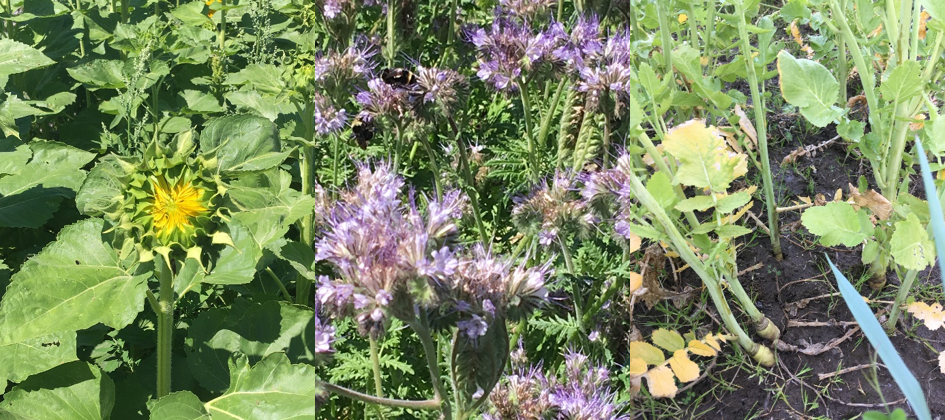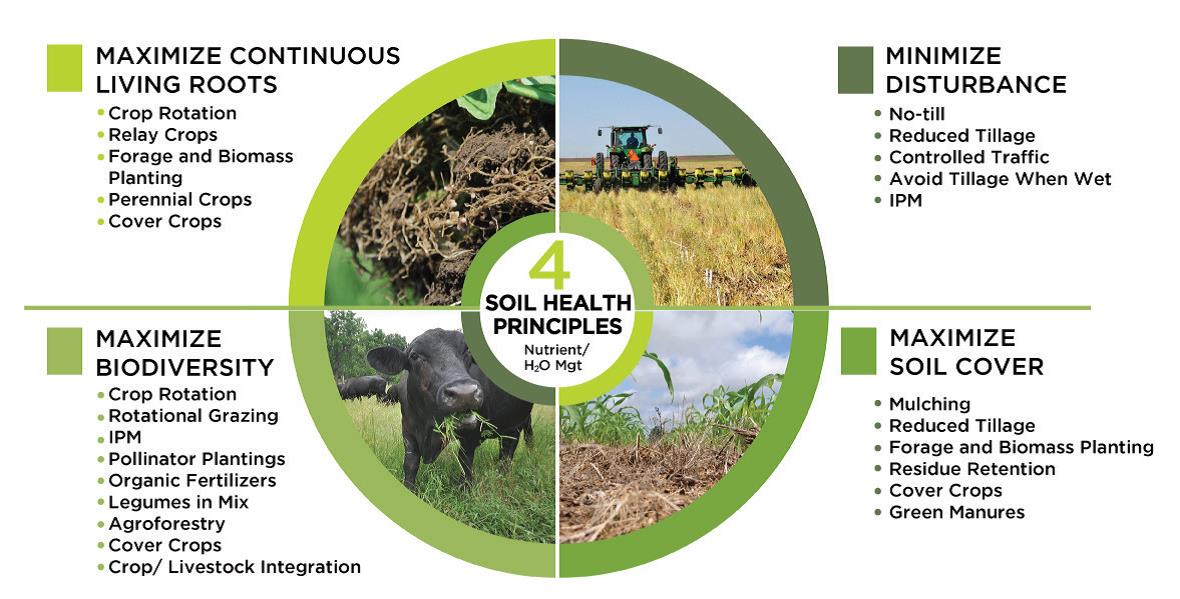Soil Health and Climate Change
Agricultural professionals in the Northwest are and will continue to be impacted by climate change in a multitude of ways. Climate change is expected to increase the vulnerability of our agriculture systems, challenging managers’ ability to adopt resilience strategies that will reduce climate and weather related risks. Through engagement with land managers, Natural Resources Conservation Service (NRCS) and Soil Water Conservation Districts, it became clear that many were interested in soil health efforts but were unsure how to link these efforts with climate change and adaptation. As a result, NRCS and the Climate Hubs partnered to develop a resource to aid advisors and land managers in discussing soil health and climate resilience together. This fact sheet, entitled “Applying Soil Health Management Systems to Reduce Climate and Weather Risks in the Northwest” explores the following topics:
- Brief overview of climate change projections for the region
- Synthesis of climate impacts to agricultural production
- Information on how climate change impacts specific to soil resources
- Strategies for applying a range of soil health management systems to reduce climate and weather related risks
- Advice for talking with farmers
- Information regarding relevant decision making tools relevant to climate change and conservation

To build greater resilience in the face of more extreme and variable weather, there are a suite of soil health management practices that land managers can adopt to reduce their risks (examples of strategies in Figure 1). In this fact sheet, we explore NRCS soil health principles (i.e. minimize disturbance and maximize soil cover, biodiversity and presence of roots) that can assist land managers in creating more resilient soil resources to mitigate risks associated with more extreme and variable weather.

Check out our fact sheet, ‘Applying Soil Health Management Systems to Reduce Climate and Weather Risks in the Northwest’, as well as our partners Oregon NRCS and NRCS’s Soil Health Division for more resources on soil health and conservation.
The Northwest Climate Hub is doing more work in the region with regard to facilitating resilient soil systems in the context of a changing climate, these efforts include:
- Partnerships to host the regional Healthy Soils, Healthy Region workshop
- Former Northwest Climate Hub Fellow, Gabrielle Roesch-McNally, lead a National Science Foundation funded team synthesis project (SHEAF) to explore how soil health can act as a social-ecological feedback to improve soil health and resilience on agricultural landscapes




